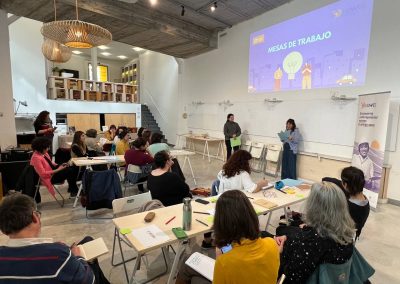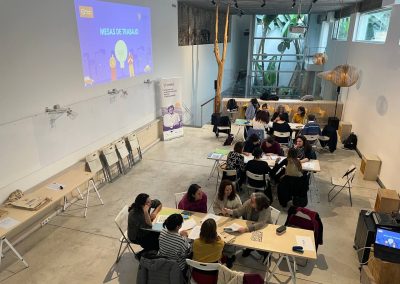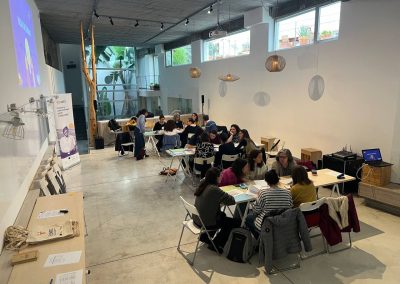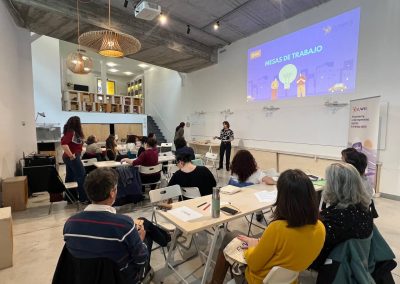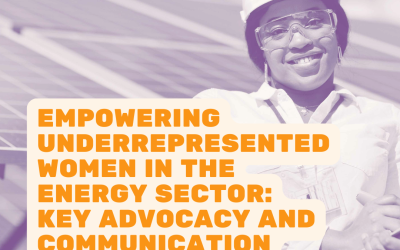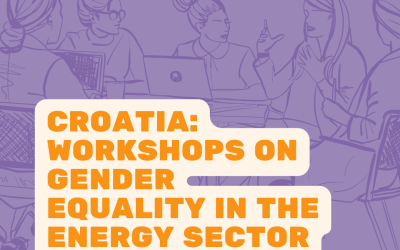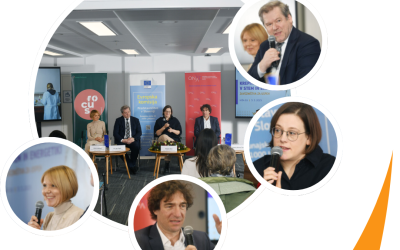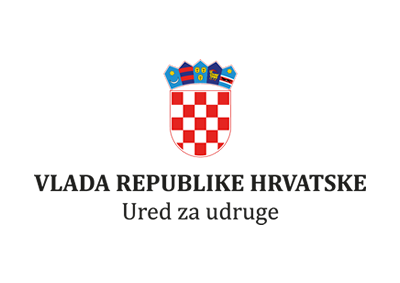Representatives from the political, educational, and labour spheres met in Madrid on March 4, 2025, to define proposals for moving towards an energy transition that prioritises life and care.
What would a truly just and inclusive energy transition look like? To move in this direction, Enginyeria sense Fronteres (ESF) and ECODES organised the conference ‘Political Dialogues: the ecofeminist future of energy’, a space for reflection and collective proposals that seek to integrate the feminist perspective in policies, education and labour related to energy.
During the session, which took place at the Espacio Ecooo in Madrid, around twenty representatives from public administrations, social organisations, cooperatives and companies debated around three key areas: the political, educational and private spheres. Based on the exchange of experiences and knowledge, the participants worked on specific proposals to transform the current energy system, move towards fairer models and guarantee the rights of people, especially those most affected by structural inequalities.
Through roundtables, challenges and opportunities were addressed to incorporate a feminist perspective in three key areas: public policy, education and business management in the energy sector. Among the main conclusions, the following stand out:
- It is necessary that the Ministry for Ecological Transition and Democratic Challenge generate, before 2027, indicators that collect gender-disaggregated data, and that these are public and accessible.
- These indicators should be monitored on an annual basis, with a commitment to improve them by 2030.
- Including the gender perspective in the energy sector requires the effective coordination of ministries such as the Ministry of Ecological Transition and Democratic Challenge, Education, Vocational Training and Sports, Social Rights, Consumption and Agenda 2030 and Equality, which must design an action plan that includes training, revision of the training curriculum at all levels, as well as promoting equality policies in the private sector, among other measures.
This meeting is a continuation of the work initiated by Enginyeria sense Fronteres in October 2024 in Barcelona, where a collaborative workshop was held to collectively debate and enrich the ‘Recommendations for a feminist perspective in the energy sector’. This document, drafted by ESF in the framework of the European project Empowering Underrepresented Women in the Energy Sector (EUWES), includes concrete proposals to integrate the gender perspective.

